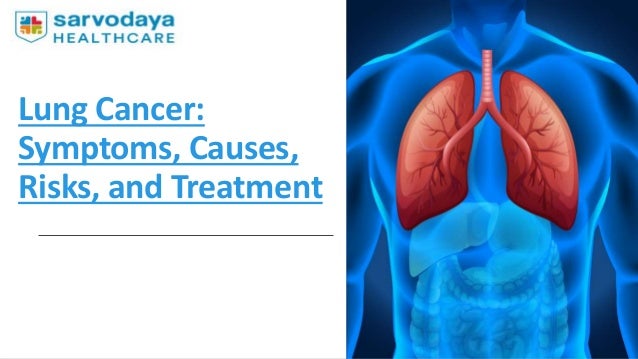
Lung Cancer: Symptoms, Causes, Risks, and Treatment
- 1. Lung Cancer: Symptoms, Causes, Risks, and Treatment
- 2. Lung Cancer: Symptoms, Causes, Risks, and Treatment Compared to other cancers, lung cancer is the most dangerous. It is the third leading cause of death worldwide. Unfortunately, it is discovered too late, when there is little chance of recovery. This is true since the symptoms frequently manifest in more advanced stages. Therefore, it is crucial to detect it as soon as possible, while it is still treatable.
- 3. Lung cancer develops when a cell overgrows in your body. Beginning in the lungs, lung cancer has the potential to spread to the lymph nodes or other organs, including the brain. Metastasis is the term used to describe the spread of cancer cells from one organ to another. Small Cell Lung Carcinoma (SCLC) and Non-Small Cell Lung Carcinoma are the two main types of lung cancer (NSCLC). They develop and react to therapy differently. Small cell lung cancer patients are far less common than non-small cell lung cancer patients.
- 4. What are the symptoms of lung cancer? Depending on the stage at which it emerges, lung cancer has different indications and symptoms. Consequently, people with the early stages of the illness may be mostly asymptomatic (show no symptoms) due to which early cancer diagnosis becomes difficult. And afterward, depending on the organs damaged, there might be a range of symptoms. Some common symptoms of lung cancer are: • Chest Pain • Hoarseness • A Bone Ache • Unwanted Loss of Weight • Spitting Up Blood Cough That Won't Stop • Weakness And Exhaustion, Shortness of Breath
- 5. If lung cancer spreads to other bodily organs, you could experience the following symptoms: •Headache (if it has affected the brain) •Alterations to the vision •Alterations in bowel or bladder habits •Unexplained Weightless If the tumor is discovered on the top of the lungs, it may damage the facial nerves, causing damage to one side of the face. The main vein that transports blood from the brain to the heart and limbs can get blocked by cancer. The upper chest, arms, neck, and face could grow as a result. A substance produced by lung cancer that mimics hormones can cause the paraneoplastic syndrome, a group of symptoms that includes the following: •Coma / Seizures •Vomiting •Nausea •Elevated blood pressure/ sugar levels •Muscle weakness •Confusion
- 6. What are the causes of lung cancer? Lung cancer is most often caused by smoking. Although the lungs are capable of healing the damage continued smoking makes it more difficult for them to do so. But even those who have never smoked or who have smoked for a long time might get lung cancer. There is a chance that someone who has never smoked might be diagnosed with small cell lung cancer. In addition to radon gas exposure, other risky compounds including asbestos, uranium, arsenic, certain petroleum products, nickel inhaled over an extended period of time, and family history may also be contributing factors
- 7. What are the risks of lung cancer? A risk factor is anything that raises one's risk of getting cancer. Depending on the type of cancer, the risk factors vary. While certain risk factors, like smoking, a person's age or family history, can be contributing factors. Having said that, these variables are only a reflection of chance. People with little or no risk factors have also been shown to be impacted by the condition. How is lung cancer treated? There are many different types of lung cancer, and each has different treatment options. Lung cancer is a serious disease that can be treated with surgery, chemotherapy, radiation therapy, and/or a combination of these treatments. Treatment options vary depending on the stage of cancer and the person's age, health condition, and other factors. Early detection is key for improving the chances of successful treatment.
- 8. Conclusion Lung cancer is one of the most deadly cancers, and it's not always easy to know when you might be at risk. If you are looking for cancer treatment then book an appointment with Sarvodaya Hospital in Faridabad. They have expert pulmonologists who can help you with the diagnosis of the disease and guide you through the treatment. It’s important to know that it might not be lung cancer, but early detection of any disease is important.
- 9. Sarvodaya Hospital & Research Centre, Faridabad YMCA Road, Sector-8, Faridabad(Delhi/NCR) - 121006 CALL US : 18003131414 EMAIL: INFO@SARVODAYAHOSPITAL.COM
